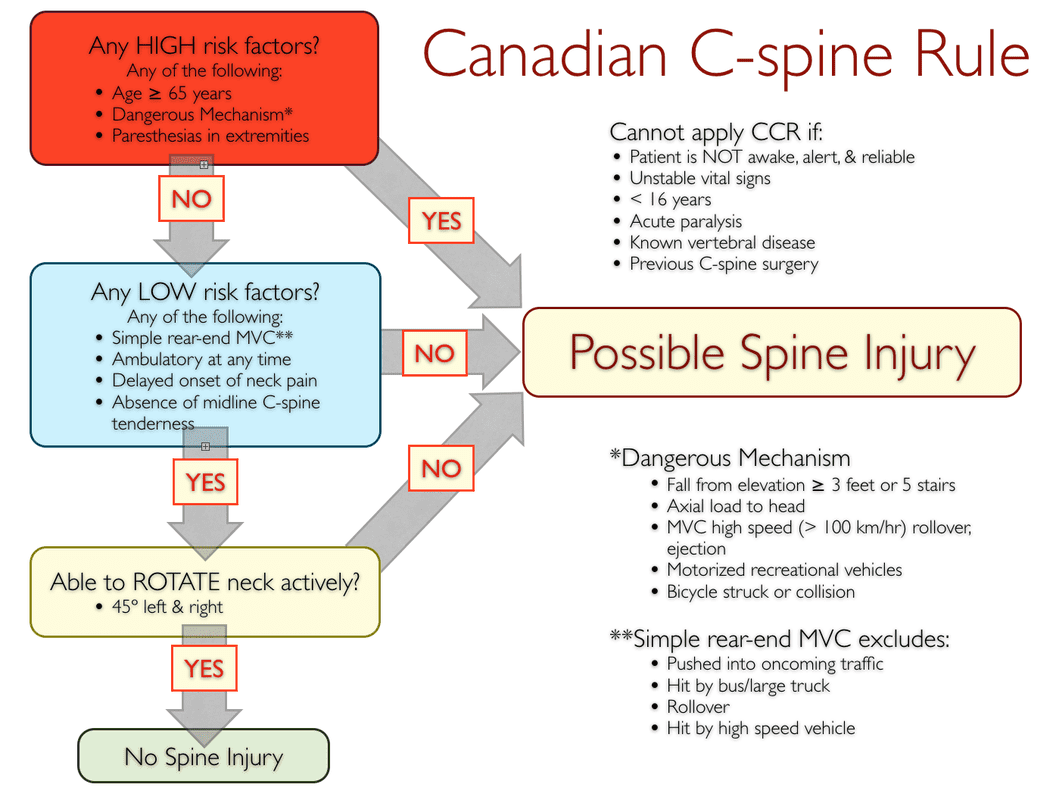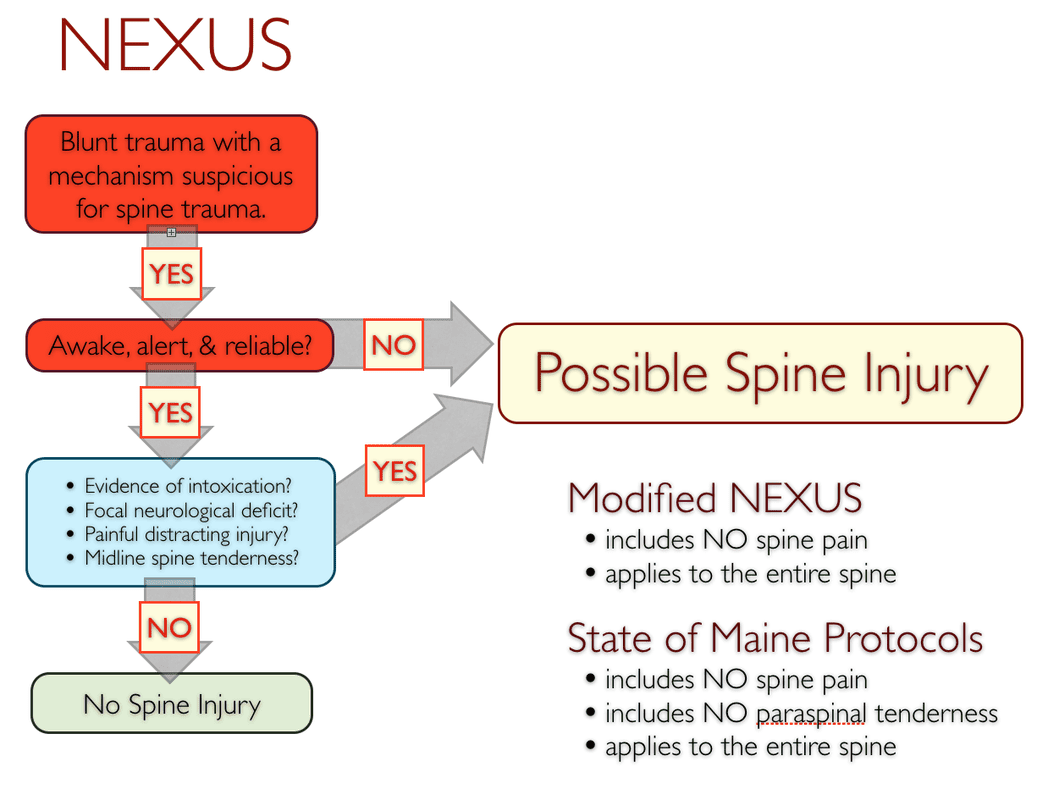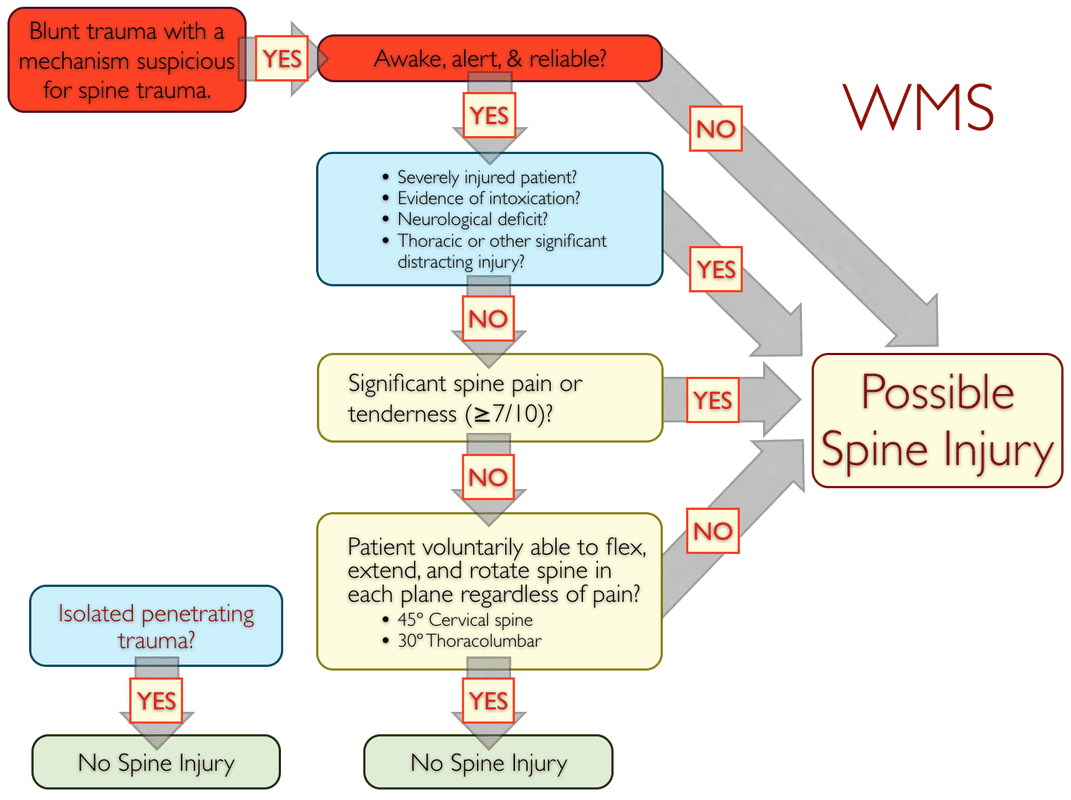|
There are five commonly used protocols for ruling out possible spine injuries in the field: the Canadian C-spine Rule (CCR), the National Emergency X-Radiography Utilization Study (NEXUS) low-risk criteria (NEXUS), the modified Nexus criteria, the State of Maine criteria (also based on the NEXUS criteria), and the Wilderness Medical Society (WMS) algorithm (a combination of the CCR and NEXUS). All are backed by solid research, in common use, and summarized below; click on an image to enlarge it. Here's a quick summary of the differences: The CCR primarily focuses on ruling out the potential for a cervical spine injury by looking closely at the mechanism of injury. The NEXUS, modified NEXUS, State of Maine protocols, and the WMS guidelines assume a spine injury and focus on ruling it out via signs and symptoms. The difference between the NEXUS and modified NEXUS is the NEXUS study focuses on the cervical spine while the modified NEXUS has been adapted for the entire spine. The original NEXUS criteria does not include assessing the patient's spine pain, the modified NEXUS does and, as such, is more conservative than the NEXUS. The State of Maine criteria adds paraspinal tenderness to the mix, while the WMS guideline is a combination of the CCR and modified NEXUS. The term focused spine assessment (FSA) is somewhat generic and may refer to any of the above protocols.
Want more information on this and other wilderness medicine topics? Take one of our wilderness medicine courses. Guides and expedition leaders should consider taking our Wilderness First Responder course. Looking for a reliable field reference? Consider consider purchasing one of our print or digital handbooks; our digital handbook apps are available in English, Spanish, and Japanese. Updates are free for life. A digital SOAP note app is also available.
0 Comments
Your comment will be posted after it is approved.
Leave a Reply. |
Categories
All
Our public YouTube channel has educational and reference videos for many of the skills taught during our courses. Check it out!
|



 RSS Feed
RSS Feed
